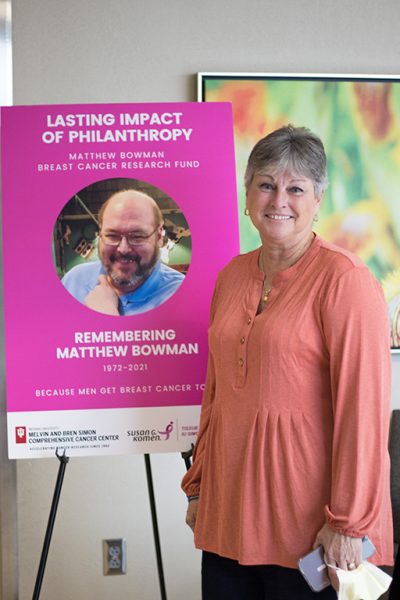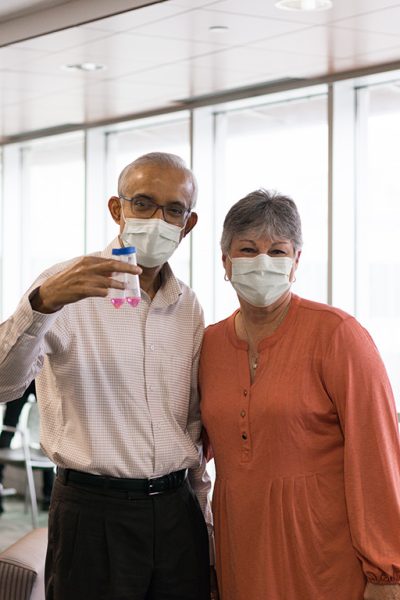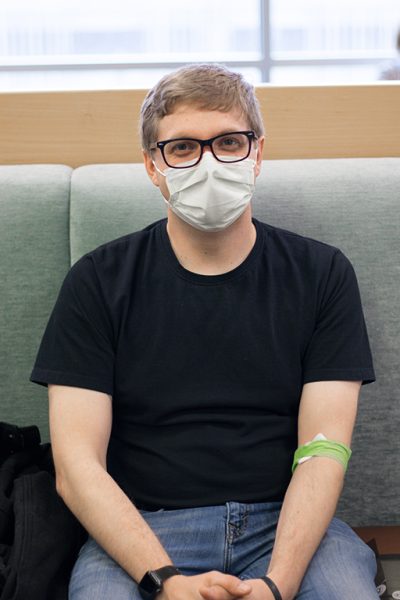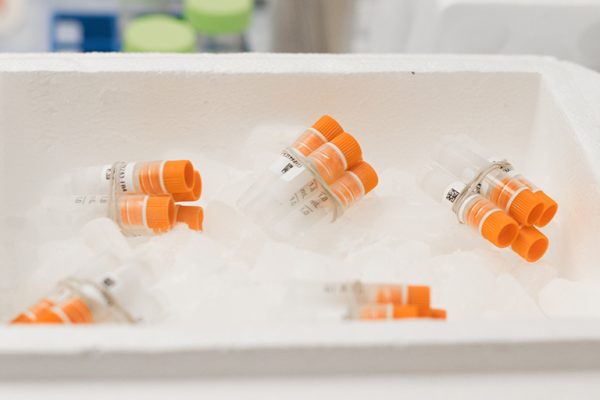Komen Tissue Bank collecting breast tissue from men on June 10
By Candace Gwaltney, Science Writer for the Indiana University Melvin and Bren Simon Comprehensive Cancer Center
A breast cancer diagnosis is difficult for anyone, but it can be particularly isolating for the thousands of men who face it each year. In the United States, about one in every 100 breast cancers diagnosed are in men and 500 men die of breast cancer yearly.
Researchers at the Indiana University Melvin and Bren Simon Comprehensive Cancer Center know that male breast cancer behaves and develops differently than that in women, and they are now working to discover more about the disease—thanks in part to Matthew Bowman.
The Vincennes, Ind., man became an advocate for male breast cancer awareness after his diagnosis in January 2017. The work came naturally to Bowman as he was already deeply involved in his southern Indiana community as a lieutenant for the Vincennes Township Volunteer Fire Department and nearly a 30-year employee at Good Samaritan Hospital in Vincennes, where he was a registered nurse.
When Bowman was diagnosed, he traveled to Indianapolis to see physician-scientist Bryan Schneider, M.D., for a second opinion. Schneider confirmed the treatment plan, so Bowman continued his care at his local cancer treatment center. The meeting led Bowman to enroll in a global study on male breast cancer at the IU Simon Comprehensive Cancer Center.





